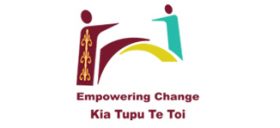About-Treaty Of Waitangi Learning.
The Declaration of Independence (1835) and Te Tiriti O Waitangi (1840) were the two documents which once signed and gazetted, signalled the beginning of a formalised relationship between the Māori and the British Crown and by extension, the relationship between Māori and all others now living in this land. These documents both promised action and instituted obligations. These avowed actions and consequent expectations are analogously referred to daily in many contexts throughout Aotearoa New Zealand. While some people in this land know the contents and intent enshrined in these historic texts many more do not. The capacity of these texts to lead, direct and nurture our nation as they were designed to do, has sadly been hampered by the ignorance of many. ignorance of many. We at Empowering also offer Treaty of Waitangi Training which is performed by our professional Timoti. The two documents called The Treaty of Waitangi (1840) and The Declaration of Independence (1835) include different aspects of relationship issues between the Maori and all other people living in this land. But these texts are often ignored by people and that is why Timoti has designed and planned Treaty of Waitangi Training. In this way, we aim to educate people so that they acquire these facts without any hassle. Bringing various facts, Timoti discusses them all and empowers change through sensitivity, discretion and tact.
Timoti is an experience specialist who professionally handles Treaty of Waitangi Principles in Education for groups of employees and different staffs. The course is really interesting and represents a perfect preparation. It includes Noho Marae experiences and learning, Creation and supply for each participant, Opportunity for further readings, Follow up feedback post Noho Marae. We try to use various learning approaches so that we will be able to transform a person’s way of thinking. Delivering Treaty of Waitangi Principles in Education Timoti wants people explore their heart as only in this way they will come to a right decision. Get in touch with us now and don’t lose this chance of taking part in Timoti’s amazing presentations.
There are many courses of learning on offer which aim to help people acquire the facts of these documents. Such courses intend to provide a method by which to move our nation forward. Some are offered based firmly on the premise that building knowledge changes attitudes. It is my contention as an experienced facilitator however, that any study which delivers a focus specifically round facts, dates, content and an overly academic summary of outcomes may often result in learners switching off or becoming disengaged from the intended outcome of the course. Some courses aspire to bring about attitudinal change; other programmes focus on teaching the facts in the belief that attitudinal change will automatically follow. In order to empower change, it is my contention that the process which facilitates the unpacking of the content and related facts within these documents is one which requires sensitivity, discretion and tact. Further, whilst the subject matter is of great consequence, it needs to introduced, handled and worked with an awareness of and a commitment to the genuine care and nurture of all participants.
As a facilitator of 35 years’ experience, I believe that the way to effect attitudinal change is to work not just through cognitive empathy but also through affective empathy. It is my strongly held belief that genuine and long-lasting change comes, when both intellect and knowledge are stimulated by the engagement of the heart. Further, I contend that working through a humanistic approach when exploring participants’ attitudes, minimises defensiveness and indeed generates an increased appetite for knowledge and understanding. This, in its’ turn, empowers attitudinal change.
I design courses in this form, because I am absolutely sure that this type of intervention and professional learning works in a profoundly effective way. When the heart is opened by a genuine human exploration of the facts, changes from the heart will then drive us forward. Facts, when offered within a korowai of compassion and genuine care for others, and when journeys are shared and equally valued, are powerful indeed. Reconciliation, as Nelson Mandela, Bishop Tutu and Gandhi each noted, comes from the heart. To walk with people and genuinely show them and share with them, through story, examples of the injustices, the manifest unfairness and tragic mistakes which were made in this nation in our past, has great potential to increase both understanding and empathy. These combined learnings create a powerful catalyst for attitudinal change and commitment to the actions and expectations which were the original intent of these venerated documents. Such empathetic learning allows not only for wrongs to be made visible, it also adds a sense of urgency for action to be taken to redress these wrongs.
It is my profound belief that there is no greater catalyst to change than engaging people in authentic experiences and sharing stories and information in a way which allows them to connect their learning to their future actions. From this rationale I therefore offer opportunities for groups of employees or staff to engage in a process of learning which takes the form of the following:
- Individualised preparation time
- Noho Marae experiences and learning
- Resources individualised collaboratively at Noho Marae
- Creation and supply for each participant, a unique noho resource
- Opportunity for further readings and resourcing to be supplied where and when requested
- Follow up feedback post Noho Marae
Programme Overview:

